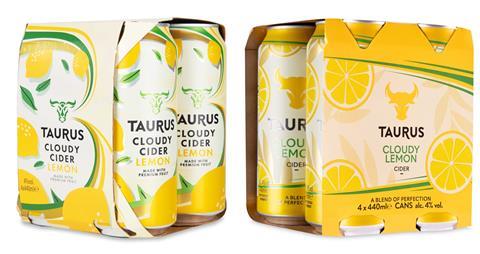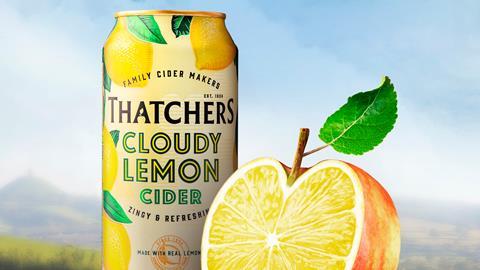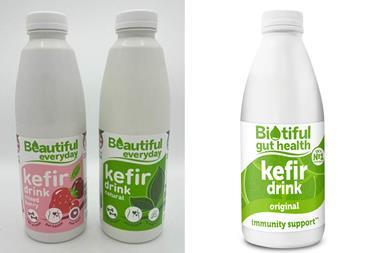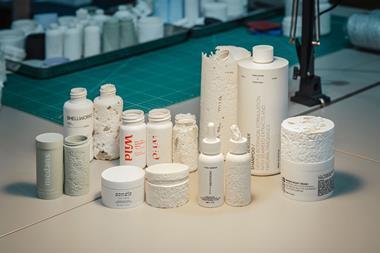Aldi’s cider was found to be neither confusing nor detrimental
It was the High Court battle some hoped – and believed – might finally make Aldi think twice about how closely its products should resemble brands.
Thatchers claimed Aldi had intentionally mimicked its Cloudy Lemon Cider. In doing so, it had set out to create a link in consumers’ minds, while taking ‘unfair advantage’ of Thatchers’ reputation, the brand said in its legal challenge.
Thatchers also accused Aldi of ‘passing off’ by making its Taurus Cloudy Lemon Cider look so similar as to misrepresent a commercial connection.
But it was the ‘unfair advantage’ part of the claim that intellectual property experts saw as having the potential – should Thatchers succeed – to curtail Aldi copycats.
Any such hopes were dashed as Thatchers’ claim was roundly dismissed in a High Court judgment this week. So what went wrong for the cider brand?
Taking into consideration the appearance of both products, including elements such as the depiction of whole lemons and green leaves, and the wording on the cans, Judge Melissa Clarke decided “the overall appearance” of the two was similar – “but to a low degree”.

The judge considered whether the similarity was enough to confuse consumers. But she was “satisfied that the principal dominating features” were the “dissimilar” Thatchers brand name on one and the “Taurus brand and bull’s head” on the other. The same logic ensured the brand lost on both confusion and passing off points.
Geoff Steward, head of litigation at IP law firm Stobbs, says confusion claims are “always an uphill struggle”.
What crosses the copycat line, according to lawyers?
That the similarity in appearance was only low was a “first nail in the coffin” for the claim, says Daniel Fletcher, IP and trademark lawyer at Forbes.
He says confusion is “never going to get over the line” when products have differing and distinctive names.
However, the judge did accept the similarities created a link in the mind of the average consumer. Such a link is a requirement of establishing unfair advantage has been taken.
The judge considered a consumer social media post calling Aldi’s a product a “knock-off” in deciding it had at least brought to mind the Thatchers cider.
Lemon imagery
But the claim next floundered on unfair advantage. The judge decided the features that gave Aldi’s cider a “low level of similarity” were either “descriptive”, ubiquitous or “commonplace”, such as “lemons on lemon-flavoured beverages”.
John Coldham, IP partner at Gowling WLG, says: “They’ve only been found to be a little similar, and they’ve featured yellow and lemons – reasonably standard for lemon cider. All these points are relevant to whether or not it is then found that it is unfair for Aldi to have decided to make the design decisions it did.”
The judge thought not. She was “not satisfied of an intention to exploit the reputation” of Thatchers’ trademark, nor that Aldi’s design had “objectively had the effect of doing so”.
In considering whether the similarities could be to the detriment of Thatchers’ reputation, her deliberations extended to a blind taste test of the two, as requested by Thatchers.
She found them to taste “very similar” while accepting “they are different” – but not “so significantly different” that consumers who didn’t like the taste of Aldi’s would look negatively on the Thatchers line.
No confusion? No trademark infringement
Without confusion, unfair advantage or detriment, Aldi had “not infringed the trademark” and “the claim will be dismissed”, she summarised.
An Aldi spokesman soon gloated: “There’s nothing cloudy about this judgment.”
Meanwhile, Thatchers MD Martin Thatcher said the brand was “disappointed” but “still believe taking this action was the right thing to do”.
The question now is, did it do it in the right way? Some IP lawyers are pointing to M&S’s High Court victory over Aldi last year, in which it pursed the discounter for infringement of the registered designs of its gin liqueurs, rather than simply trademark infringement.
“Really what people should be doing is registering their packaging designs”, says Coldham. Otherwise, “they are using the wrong tools to go after these things. You need a package of different IP.”




















No comments yet